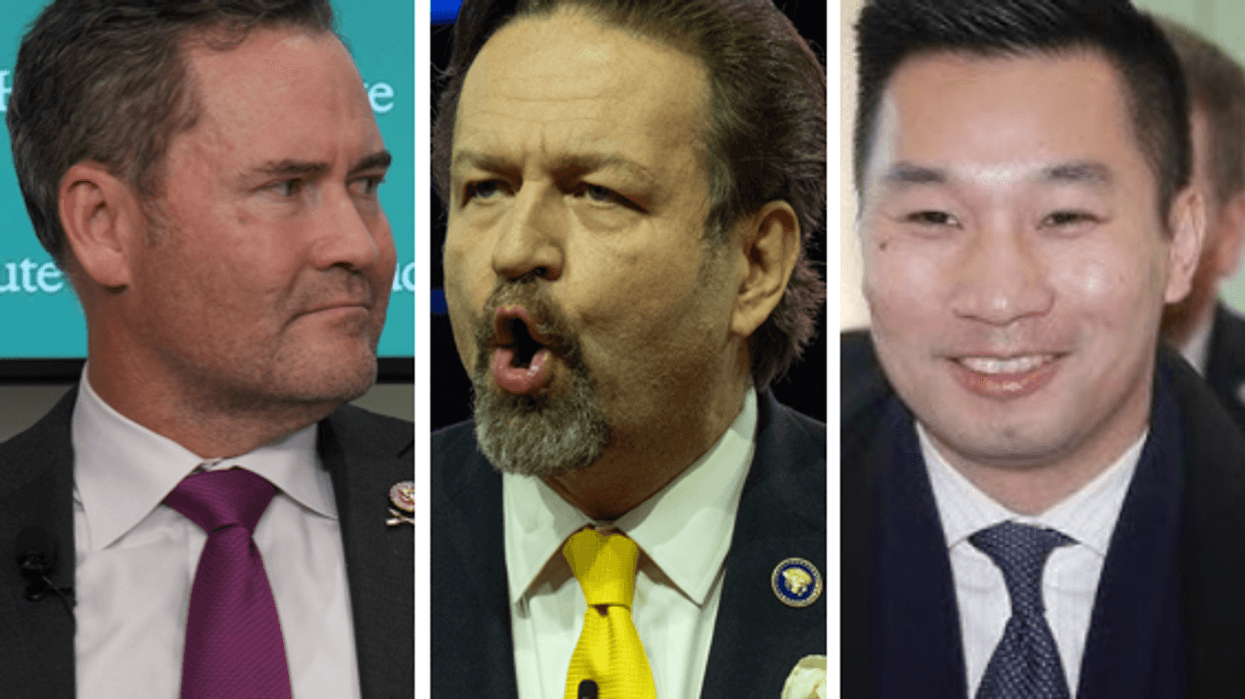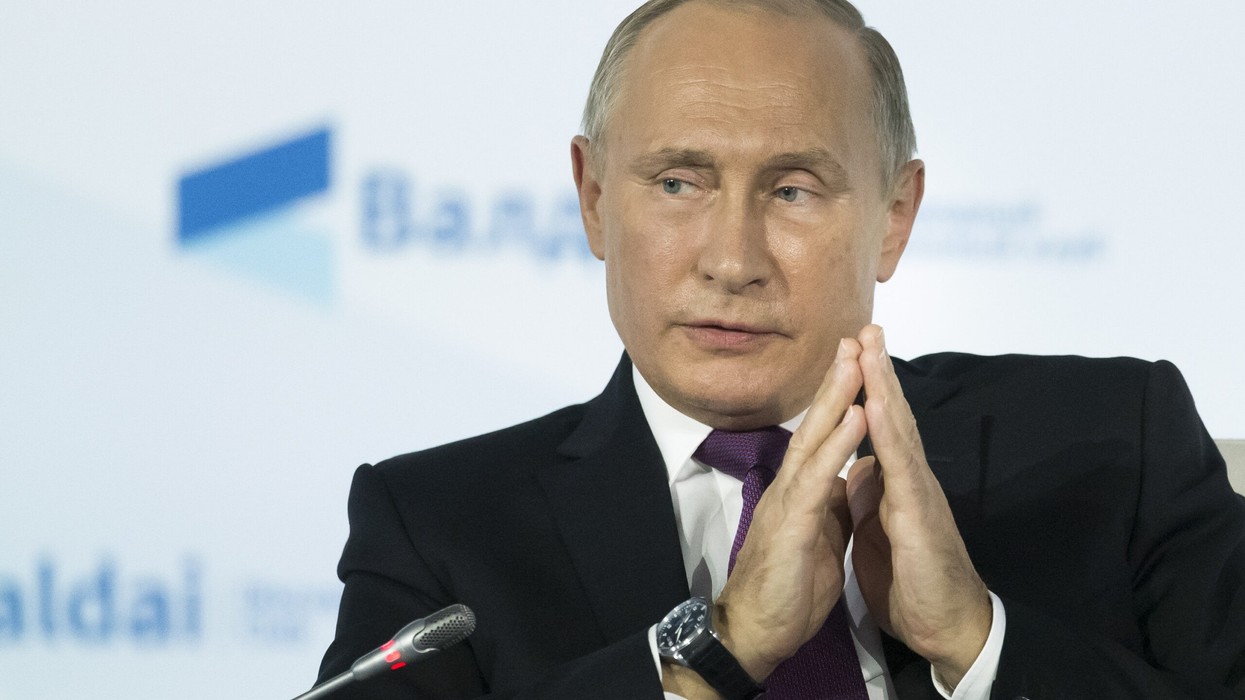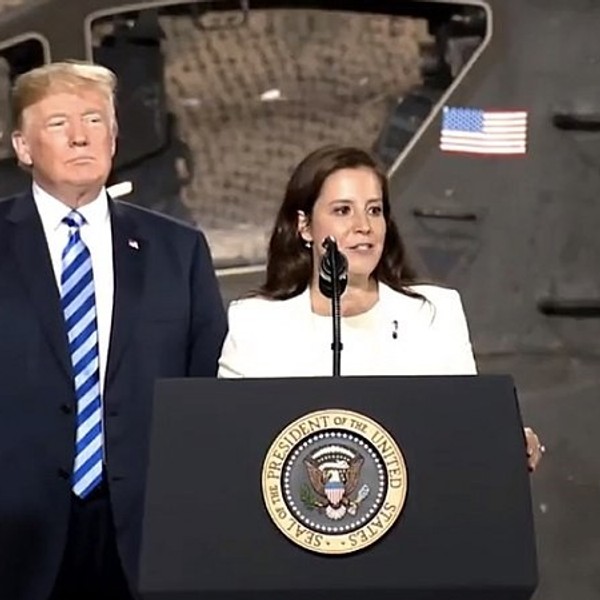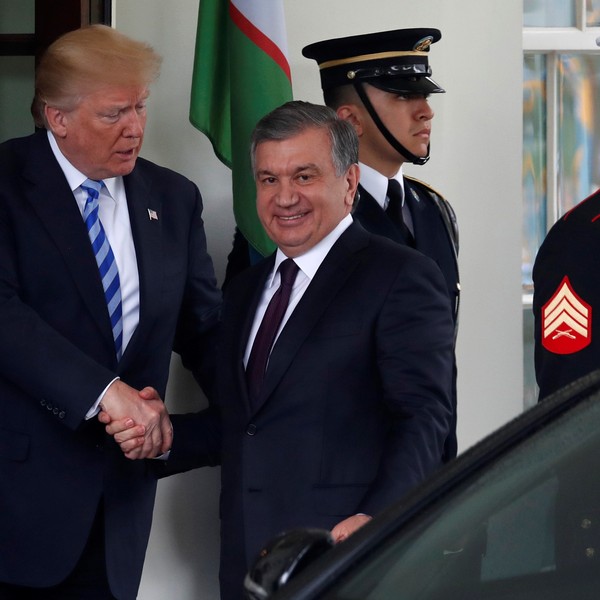When the Nazi Party consolidated power in Germany in 1933, they enshrined into their version of history the myth that the German Army had not lost in the Great War but had been “stabbed in the back” by cowardly civilian politicians, Jews, communists and socialists.
After maneuvering to get Socialist political leaders to sign the armistice (and, thus, take the blame for it), German General Erich Ludendorff popularized the Dolchstoss Legende. “The lie that German democracy, not the earlier authoritarian regime, was responsible for the disaster of World War I,” writes historian Jeffrey Herf, “figured prominently in the right-wing propaganda assault on the Weimar Republic.” The Nazis then used the lie to paint fascism as a restoration of Germany’s honor and justify persecution of their domestic opponents.
President Richard Nixon and Secretary of State Henry Kissinger created a similar myth to claim that the United States could have won the wars in Vietnam, Cambodia, and Laos had they not been undermined by the antiwar movement, liberals and the press. “The stab-in-the-back theme developed into a full-fledged explanation for American defeat after the war ended,” wrote historian Jeffrey Kimball in 1988, “and as another, related debate unfolded over the causes of failure and the future of policy.”
Years before becoming former President Donald Trump’s national security advisor, H.R. McMaster, wrote an entire book, Dereliction of Duty, using a variant of the concept. He claimed we lost the Indochina wars because weak generals did not stand up to civilian leaders. The “war was lost in Washington, D.C.,” he claimed, barely acknowledging the tenacity and strategy of the Vietnamese.
As Kimball notes, this is not just an effort by the losers of wars to find scapegoats for their defeat. It is part of the struggle to shape future policy. After 9/11, the myth was used to counter the so-called “Vietnam Syndrome” — the twenty years when America turned away from launching major wars — and manipulate a fearful American public into waging a series of new wars in the Middle East.
In 2004, faced with a Sunni uprising in Iraq that some compared to the 1968 Tet Offensive, neoconservative columnist Charles Krauthammer rallied public support for “the noble goal” of turning Iraq into “a united, pluralistic, democratic” nation by claiming the military did not actually lose the Vietnam War. “Walter Cronkite, speaking for the establishment, declared the war lost. Once said, it was.”
This betrayal myth is now part of a disturbing new narrative building in Washington as foreign policy elites struggle with the ignominious ending of the 20-year Global War on Terrorism that most of them supported. The narrative, apparent in D.C.-based panels and Zoom sessions, interviews and articles, has three interlocking components.
First, the invasions and occupations of Afghanistan and Iraq were just and noble endeavors, though flawed in execution. Robert Kagan, one of the chief architects of the neoconservative mission to invade Iraq, claims in a sweeping new article defending the wars that “increasing the U.S. military presence abroad was a more effective means of combating terrorism than decreasing it.” Kagan claims that our problem wasn’t waging war, it was not waging enough war. “Afghanistan was a classic case, repeated many times throughout American history, of a United States with one foot out the door from the moment of intervention.”
Washington webinars and publications are now filled with analysts explaining to audiences that the wars would have succeeded if only officials had implemented the measures they sagely advocated. Kagan’s militarist views dominate the elite: ending wars and withdrawing troops risk a global “withdrawal and retrenchment” that could usher in “the next great war.”
Second, 2,500 U.S. troops in Afghanistan could have securely sustained the status quo indefinitely. Richard Haass, president of the Council on Foreign Relations, argues that U.S. casualties had declined over the past few years and that keeping a residual U.S. force might “not lead to military victory or peace, but it would avert the collapse of a government.”
Such arguments ignore reality. Had President Joe Biden broken Trump’s February 2020 Doha deal that committed the United States to withdraw all forces by May 1, 2021, the Taliban would have resumed the attacks on American forces it had suspended. Attacks similar to last week’s horrific ISIS-K bombing in Kabul could have become a weekly occurrence.
Third, and most insidious, is the claim that all was working well until Biden (and, in some tellings, Trump) stabbed us in the back with his “withdrawal of choice,” as Haass calls it. “Our secretary of state (Mike Pompeo) signed a surrender agreement with the Taliban,” McMaster told Bari Weiss’s podcast last week "The Taliban didn’t defeat us. We defeated ourselves.”
Unlike his Vietnam critique, McMaster implicitly absolves the generals of blame by instead blaming civilian political factions. “President Trump put in place a reasonable and sustainable approach on Afghanistan in August 2017,” he told MSNBC’s Andrea Mitchell. “Then the far-right got in his ear and the self-loathing far left and said you need to end this endless war.” As in his Vietnam critique, he ignores the fact that the enemy always gets a vote. Afghan expert Anatol Lieven notes that the Taliban were equipped with only basic weaponry, “Yet, the Taliban have won, by sheer resilience, better strategy and superior public appeal.”
Far-right politicians are already using the stab-in-the-back lie to attack the Democrats, many of whom scurry to protect themselves by joining in the criticism. Republican members of Congress demand Biden resign or be impeached for “borderline treason.” President Biden must be held “accountable for this tragic chain of avoidable events,” Rep. Tom Rice (R-S.C.) tweeted. “Resign and turn the job over to someone who can handle it.”
“Joe Biden has blood on his hands,” declared GOP leader Rep. Elise Stefanik (R.-N.Y.)
Kagan and other pro-war, anti-Trump voices like columnist Max Boot have little interest in a Biden failure but they have an enduring interest in preventing the debacle in Afghanistan from souring the American public on the interventionist policies they have long promoted. They are working to shift the blame from those who started the wars to those who are ending them.
The media contributes to this sad game, focusing more attention on the past 20 days of withdrawal than on the past twenty years of war. As Jim Lobe noted, the three major networks combined devoted a mere five minutes to Afghanistan on their nightly news shows last year. Now, they are obsessed with the tiniest details of the withdrawal while ignoring the blockbuster revelations of Craig Whitlock’s “The Afghanistan Papers,” published in The Washington Post in 2019.
These interviews with former military and civilian leaders reveal, Whitlock writes, “that senior U.S. officials failed to tell the truth about the war in Afghanistan throughout the 18-year campaign, making rosy pronouncements they knew to be false and hiding unmistakable evidence the war had become unwinnable.”
The media’s myopic focus on the current crisis means that when the withdrawal concludes the press may quickly move on without ever examining how flawed strategies and deceptive officials brought us to this tragic moment. Like the German public, the American public will have gone through the war hearing only rosy (false) reports of progress from the generals. Like the Germans, they will be perplexed by what appears to be a sudden collapse caused, they will be told, by weak civilians.
“President Biden’s opponents are already trying to pin the blame for the debacle in Afghanistan squarely on Biden himself, conveniently overlooking that it was President Bush who began the war, and two presidents thereafter who continued and escalated the war in Afghanistan,” warns Dr. Assal Rad. “However, 20 years of war is not the failure of any one individual or administration; it is an institutional failure. As such, it requires a deeper examination and fundamental change.”
She is not alone. “The occupation of Afghanistan was based on a flawed logic that people were either with us or against us, that the Islamic world was a swamp that we had to drain and that we had the moral authority and the power to remake an entire region,” writes New York Times editorial board member Farah Stockman. “In the process of all that draining and remaking, we created a whole crop of other terrorists and upended the lives of tens of millions of innocent people.”
Stockman actually understates the case. The Cost of War Project at Brown University estimates that almost one million people have been killed in these pointless wars and over 38 million displaced. The U.S. federal price tag is over $6.4 trillion and growing as Washington conducts counterterror operations in over 85 countries.
Stockman, Rad and analysts like those at the Quincy Institute represent the minority view right now. The Washington foreign policy elite are focused on defending their reputations and privileges, not in confronting their failures. “This is the foreign policy conversation much of Washington is trying desperately to avoid,” says columnist Ezra Klein.
Unless we have that conversation, the stab-in-the-back lie will take hold and cripple U.S. national security policy for decades to come. The Afghanistan withdrawal will become an exception rather than the beginning of a fundamental rebalancing of American security priorities. McMaster’s view that we just lack the political will to confront “the enemies of all humanity,” and that Biden isn’t man enough for the job will become accepted wisdom. “It is this way of thinking — not just the occupation of Afghanistan — that must end,” says Stockman. Amen.















